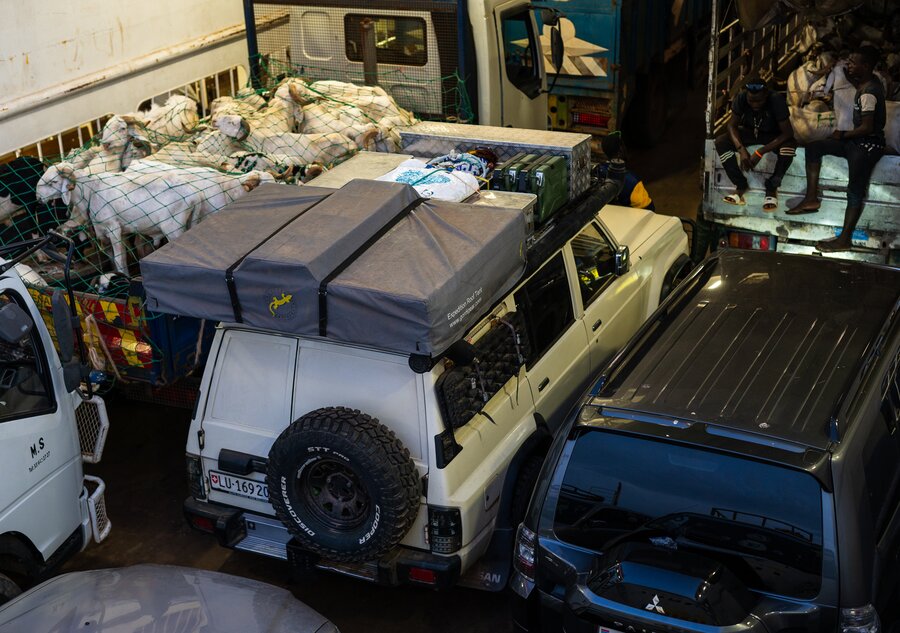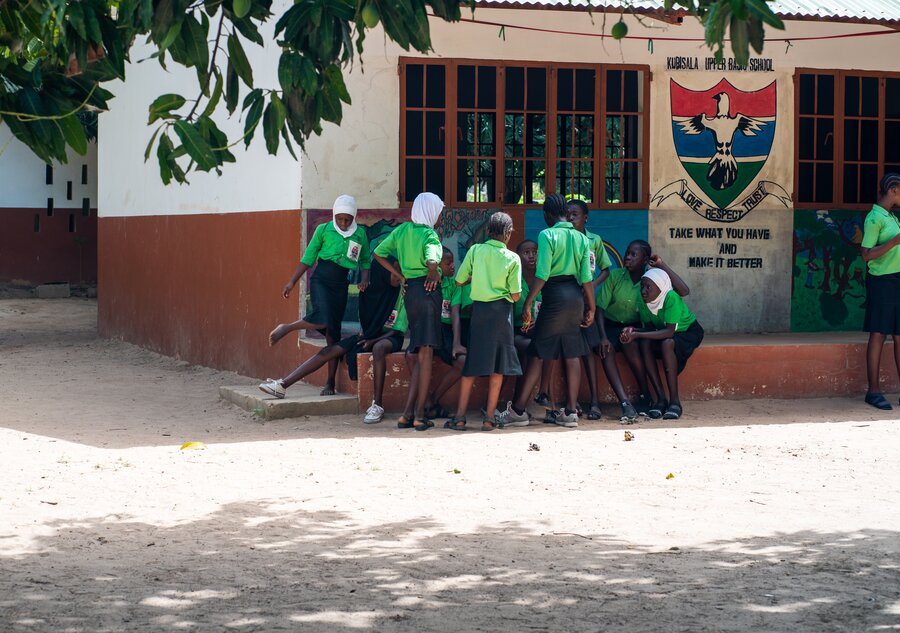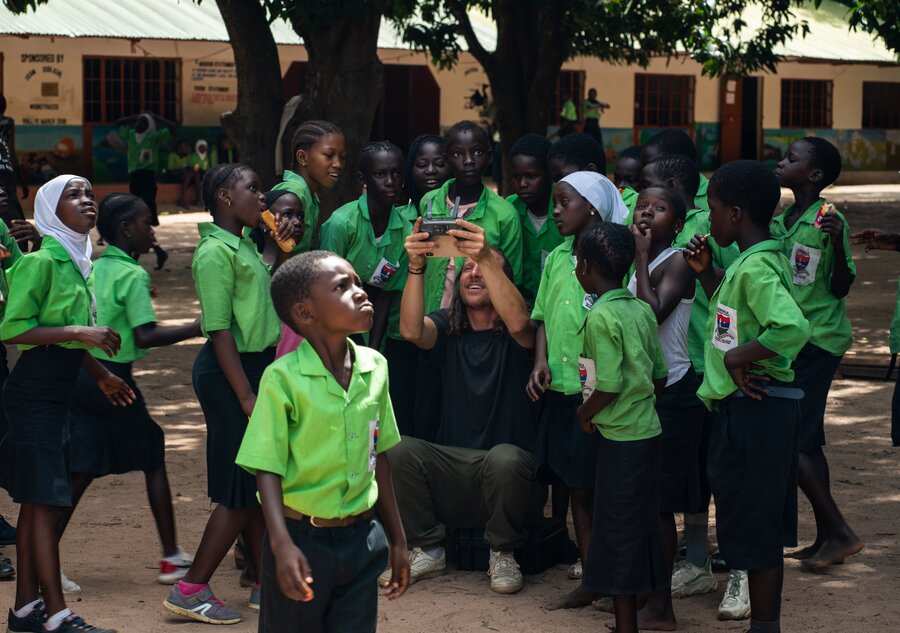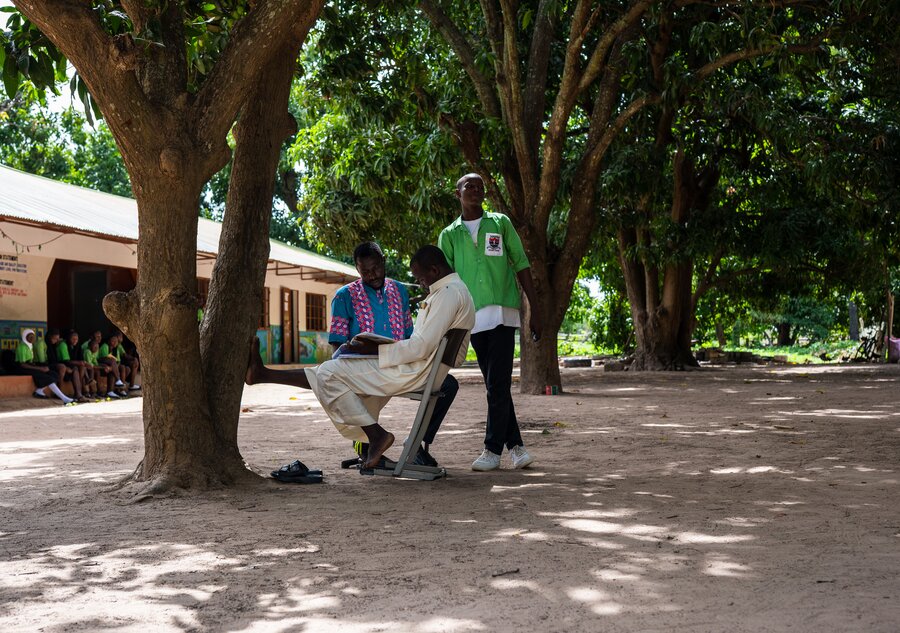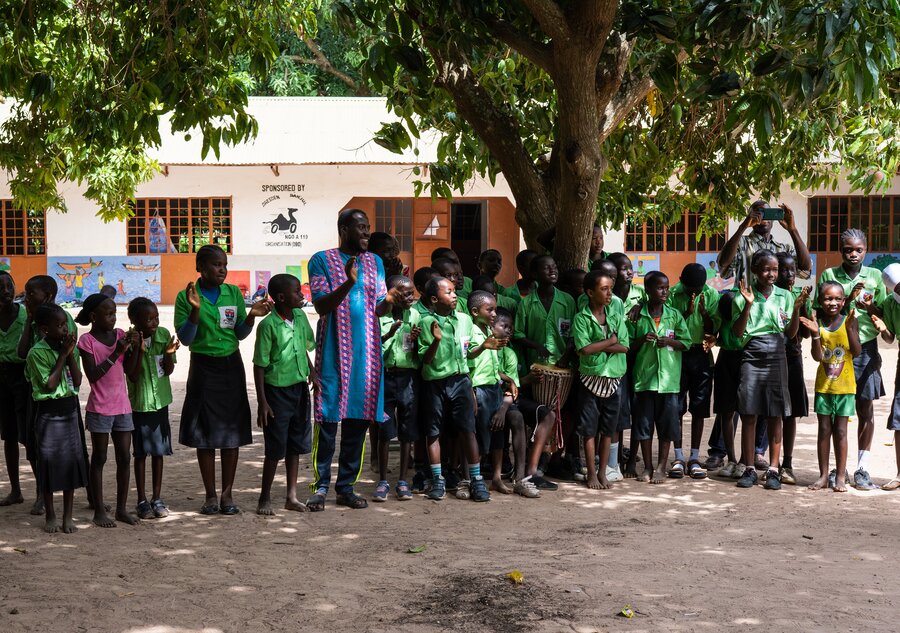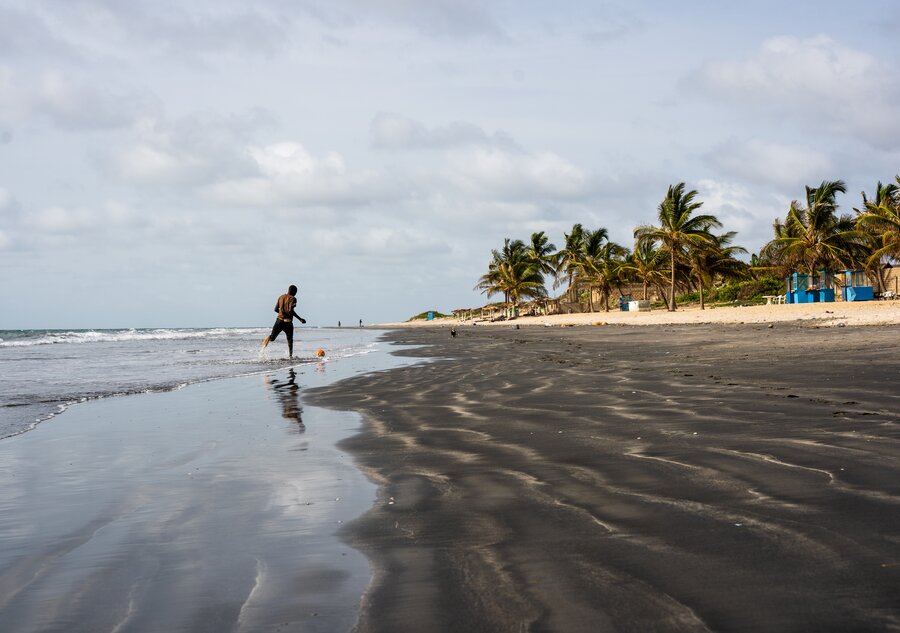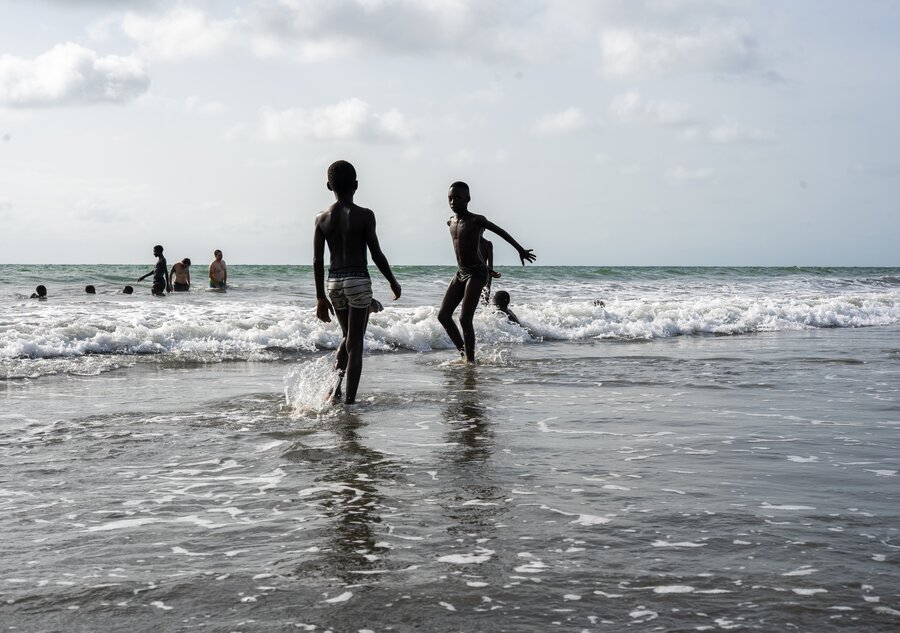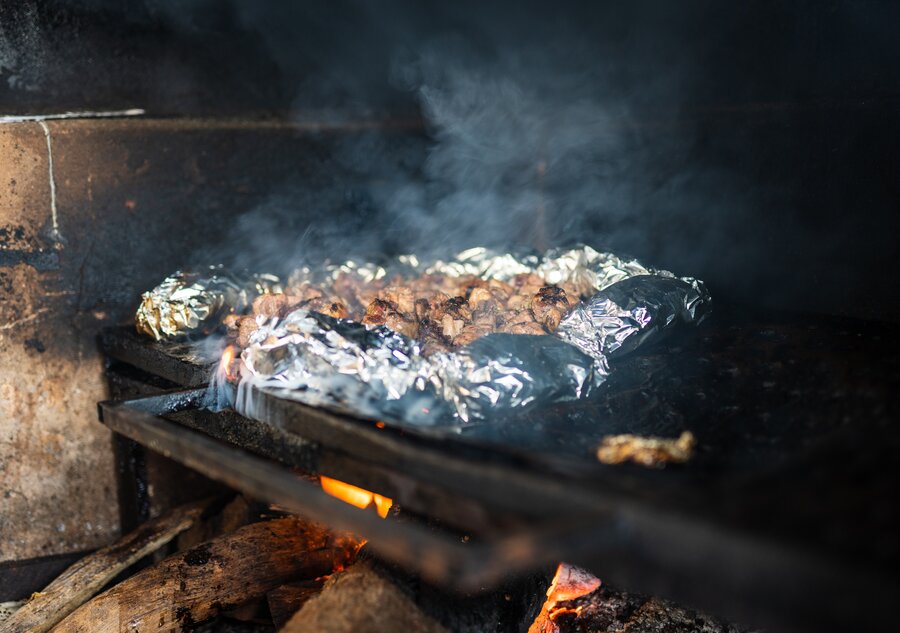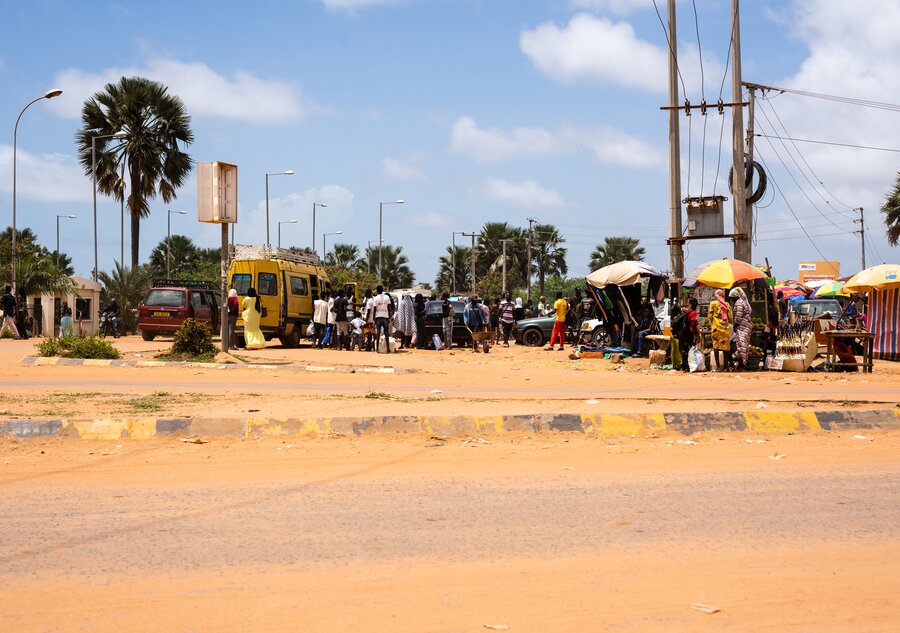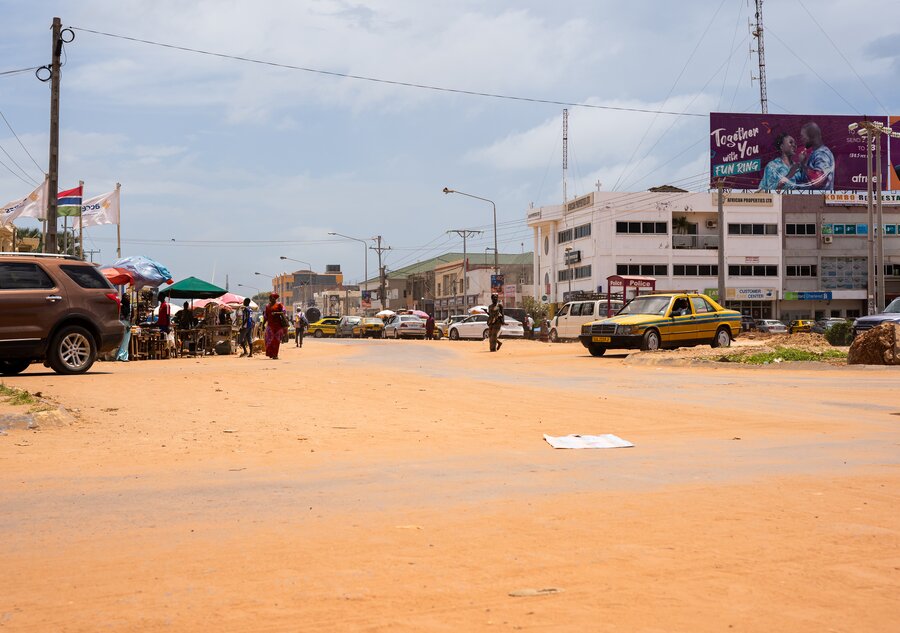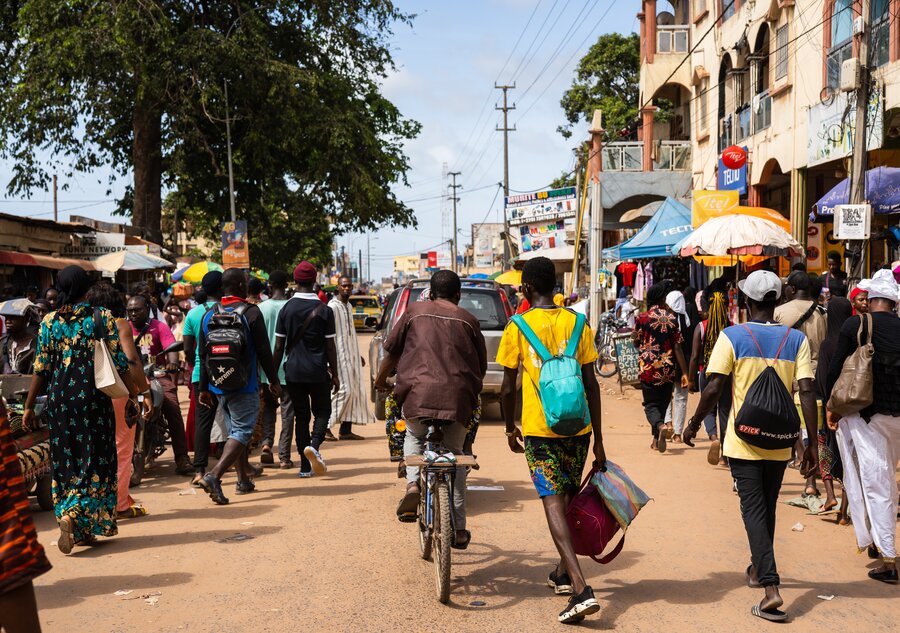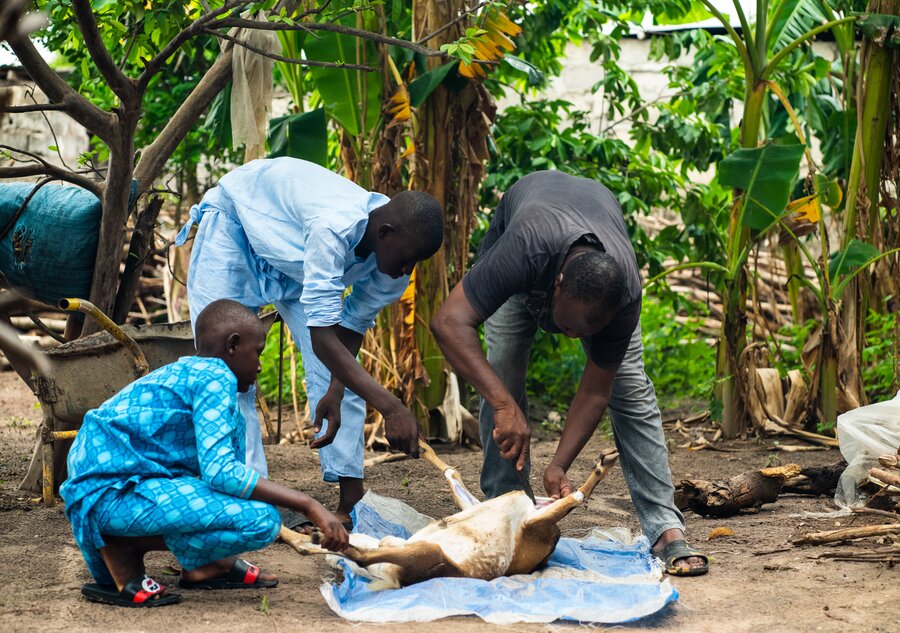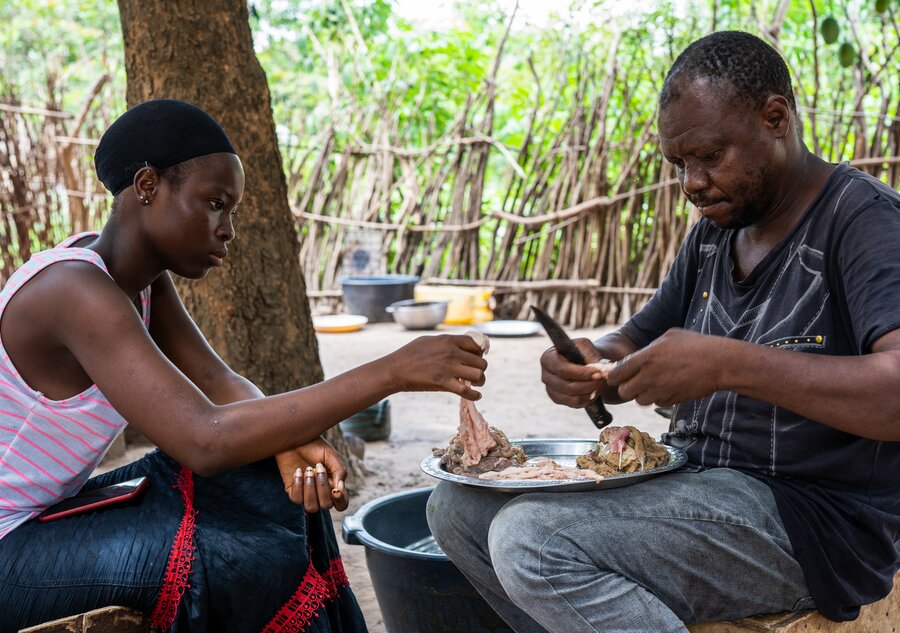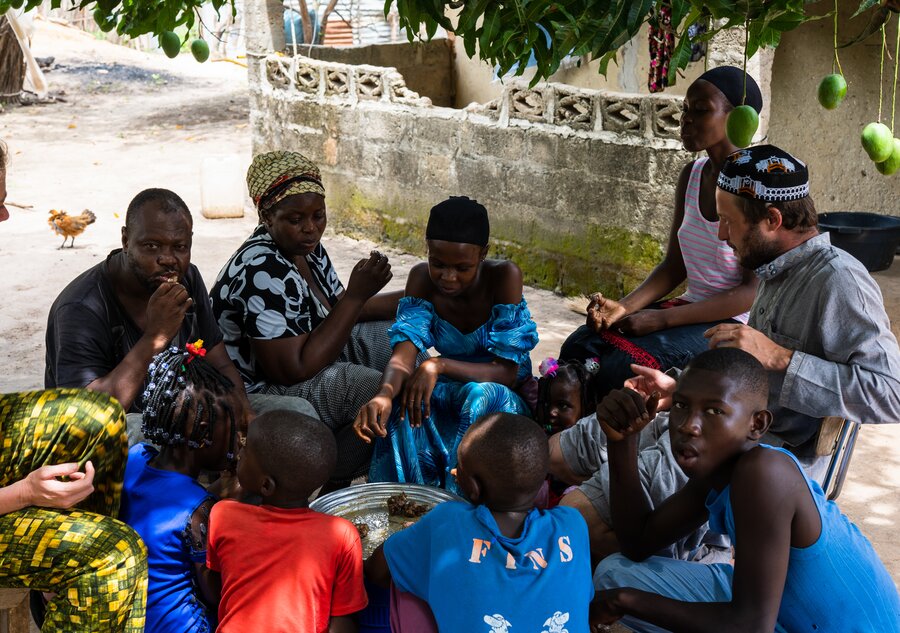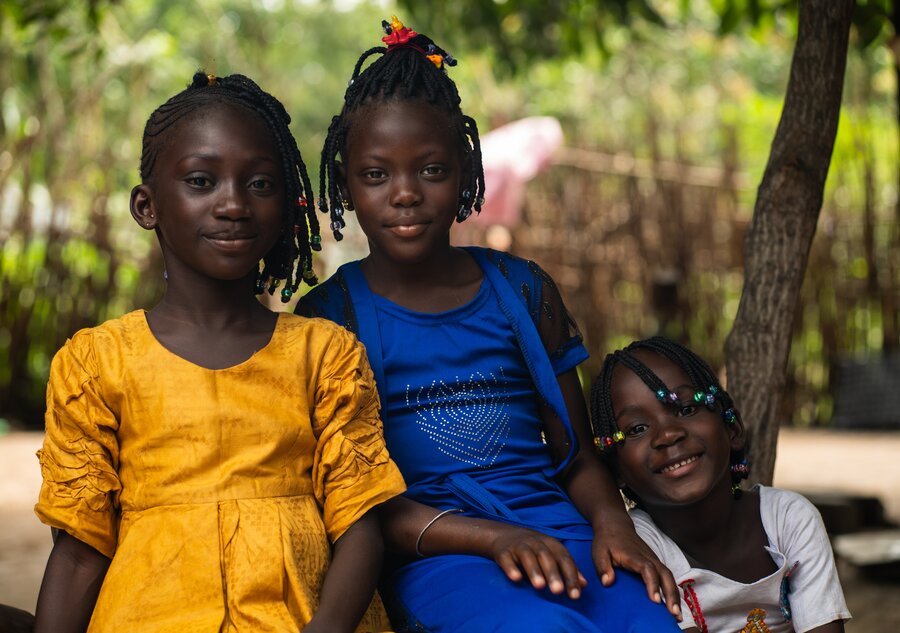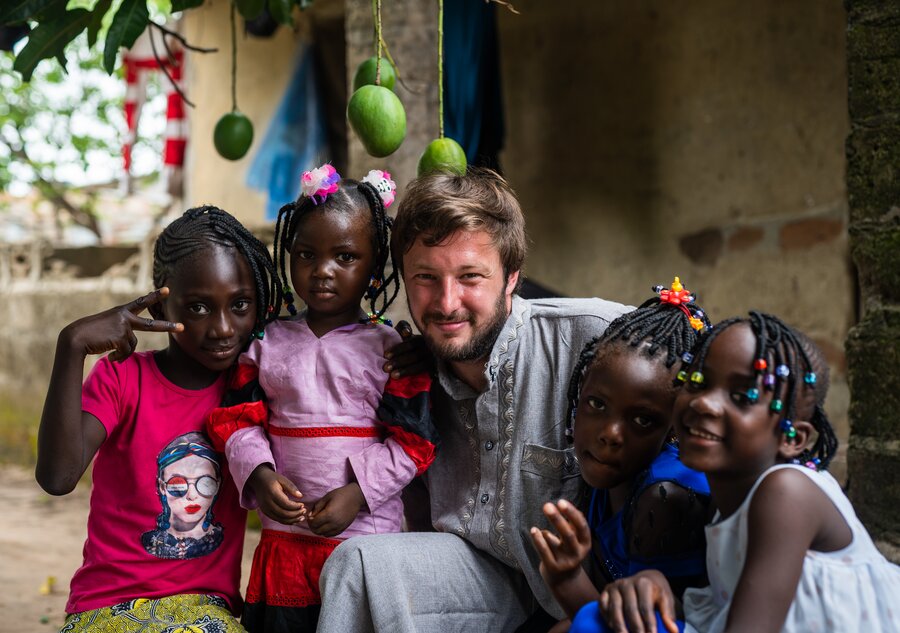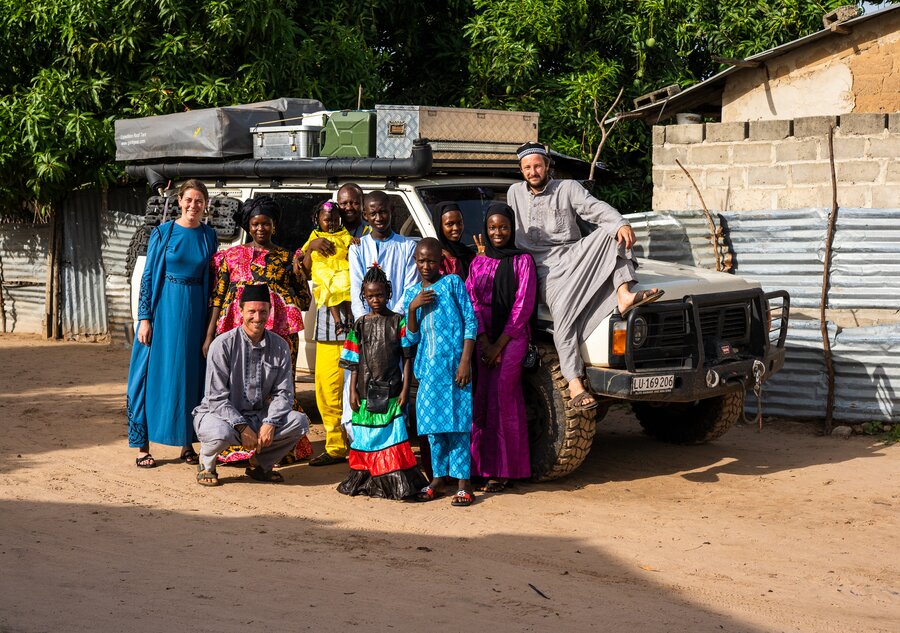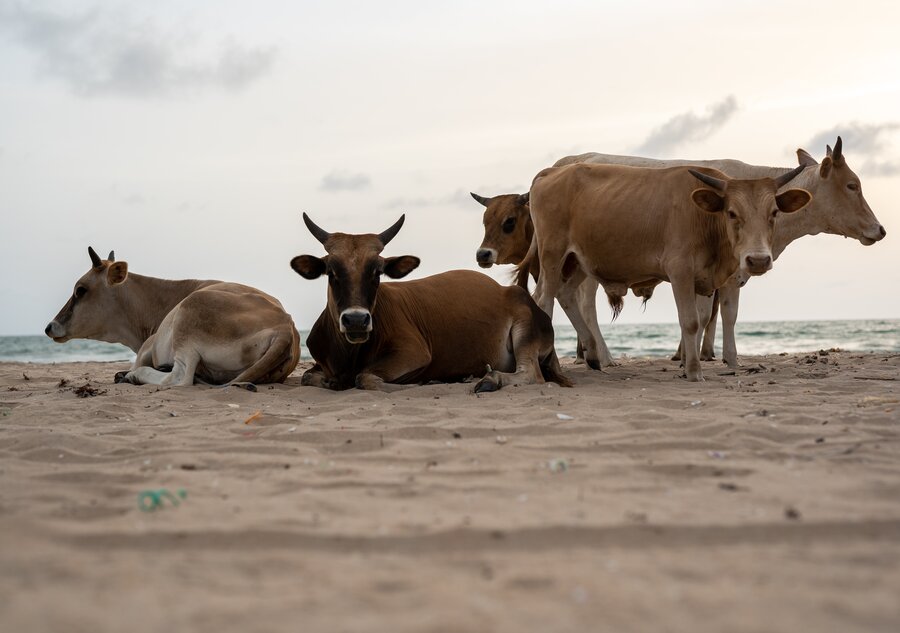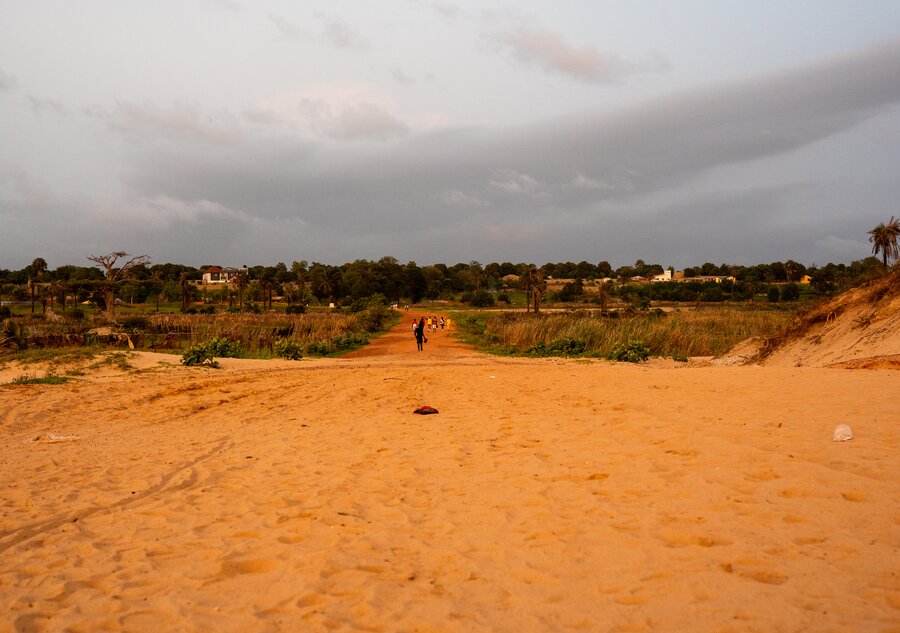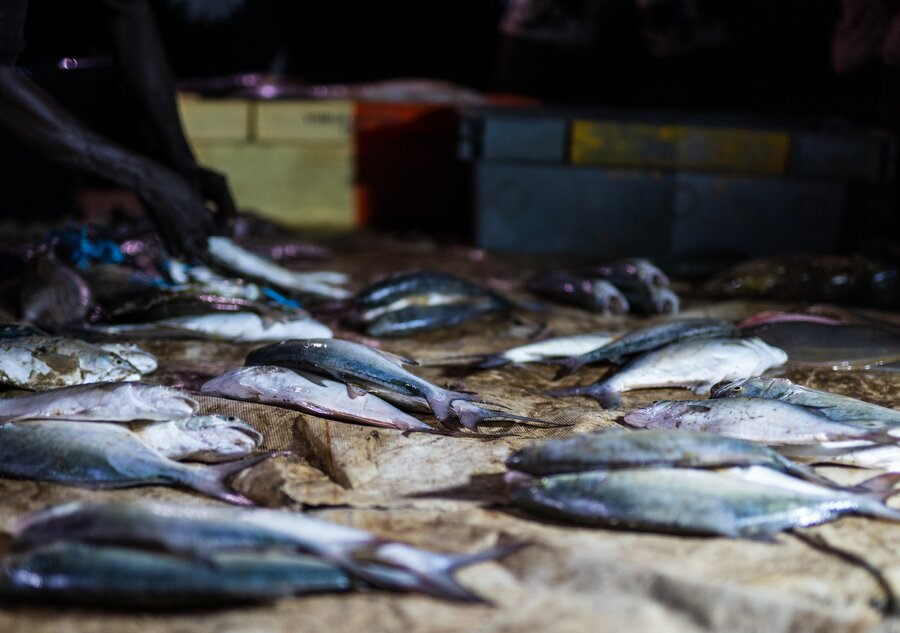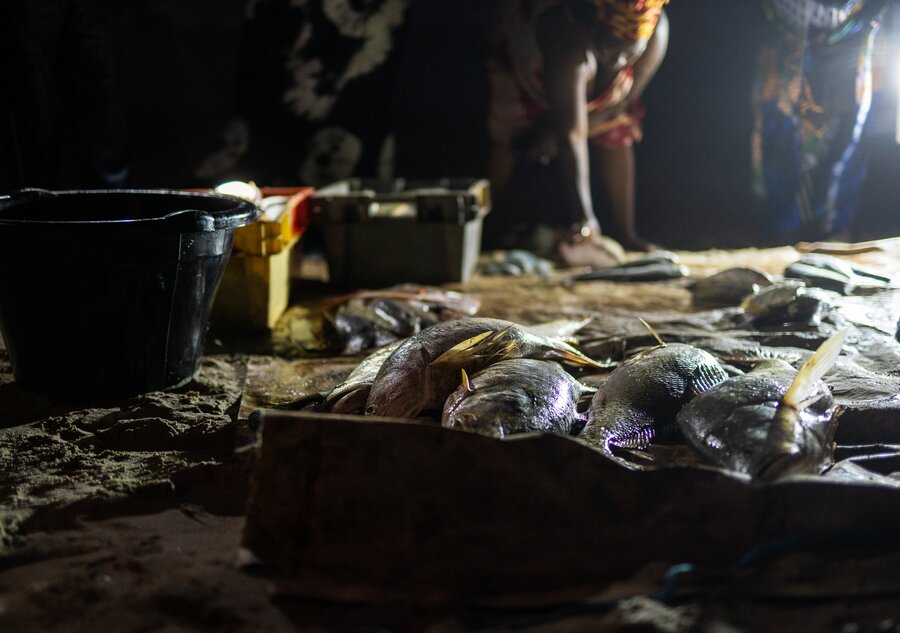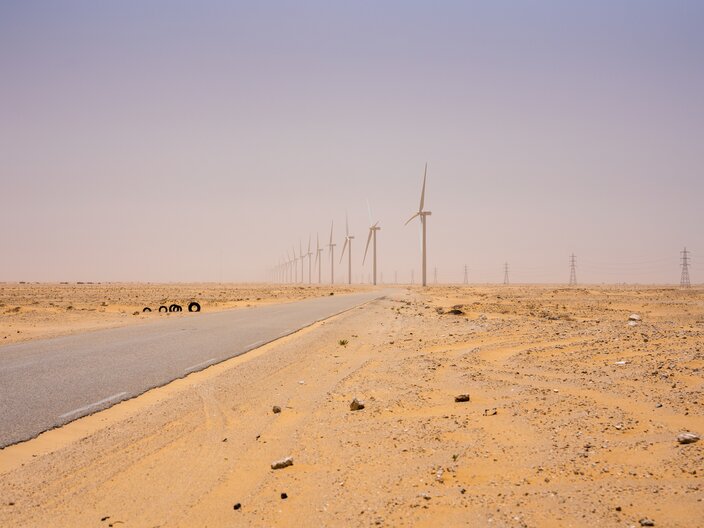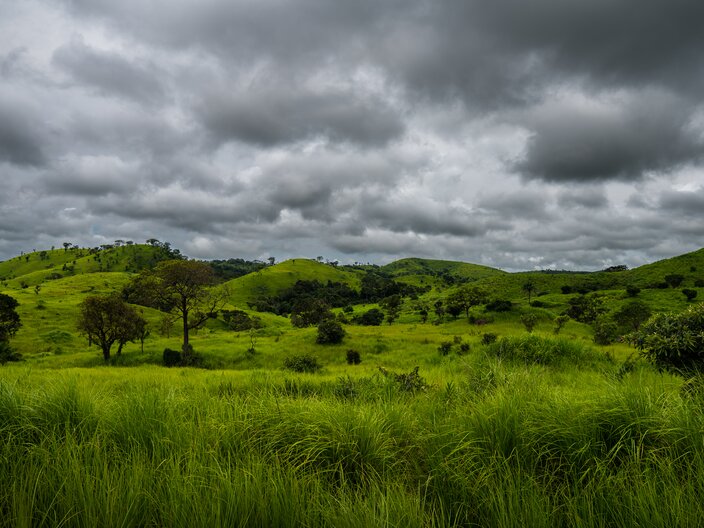Serekunda - a suburb of the capital Banjul - became our home base for a few days. We were allowed to park Dötnius and our roof tent in the compound of a German-Gambian NGO. Our contact at the NGO also invited us to visit a public school, which they regularly support. It must be said that funding covers only specific projects, and the NGO does not own any of the land nor buildings. These belong to the school’s director and while we were there, the roofs of two school buildings were being renovated.
We toured all the school’s premises, spoke at length with its director who explained its structure and received information on the students’ syllabus from the teachers. We met lots of the children who delighted us with their singing and rhythmic talents. We, in turn, shared with them the wonders of our drone: how it worked and how their school and they looked on camera.
Further to this visit, we had an interesting conversation with the founder of the NGO, who provided us deeper insight into the operational and strategic challenges of cooperation between the school and the NGO.
For us, it was the first contact of our trip, with an active, locally driven NGO and will certainly not be the last. Development aid is a big and controversial topic in Africa, which we will examine with interest.


